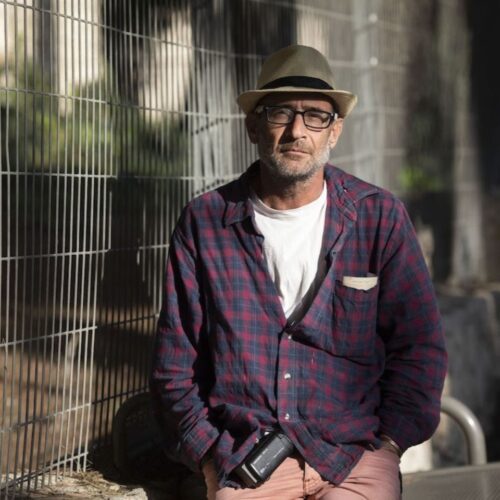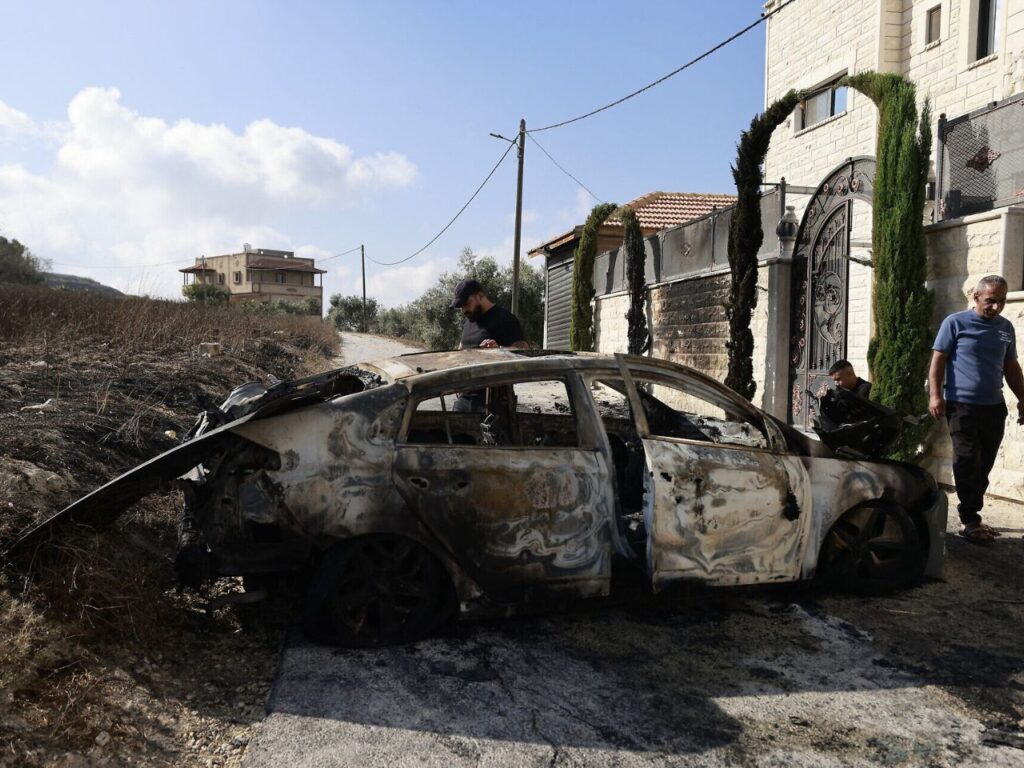Caught in conflict: human rights activist witnesses Israeli settler attack on Palestinians in the West Bank
I thought of the small fights I saw between groups, and of the work I did to advocate for Palestinian rights in the West Bank. Now, I faced something much worse and more severe. The settlers began entering houses, hitting people, and forcing them out of their homes. I watched everything happening before me. They smashed windows and broke items inside any house they could breach. They set some homes on fire.
- 1 year ago
September 7, 2024

RAMALLAH, West Bank ꟷ I never imagined being caught up amidst the intense violence of war in Israel and Palestine. Since the October 7, 2023 attack by Hamas in Israel, the conflict affecting Palestinians, including in the West Bank, continues to escalate. Life has become unfair for everyone, and it feels difficult to understand which side to take.
I have lived in Israel all my life, fighting for the rights of Palestinians at the western border. While returning home from the West Bank recently, the reality of the conflict between Israelis and the Palestinian shepherd community hit me hard.
Read more stories out of the conflict between Israel and Palestine at Orato World Media.
Israeli man staying amongst Palestinians in West Bank witnesses violence firsthand
For several years, I went into the West Bank, staying with one Palestinian family or another near the western border of Israel. The escalation of violence really took off after an Israeli teen went missing in the West Bank in April 2024, and showed up dead a few days later. Israeli settlers in the area claimed a Palestinian killed him.
[Click here for a brief history of Israeli settlements in West Bank. West Bank remains home to 3.3 million Palestinians, and 450,000 Jewish settlers in 146 settlements excluding Jerusalem. These settlements often encroach on Palestinian villages and land. Settlers fall under Israeli civilian rule. Palestinians fall under Israeli military rule. Many settlers are heavily armed.]
By late afternoon, I noticed something seemed wrong. The usual sounds of children playing and neighbors chatting echoed through the area where I stayed. However, a vehicle made its way right into the village carrying many men with guns.
I urged the Palestinian family hosting me to take their children inside and lock the door. They experienced attacks before, and I saw the fear on their faces. I felt scared too, being an Israeli living amongst Palestinians. The settlers could easily target me too. The family rushed to safeguard their children inside.
I thought of the small fights I saw between groups, and of the work I did to advocate for Palestinian rights in the West Bank. Now, I faced something much worse and more severe. The settlers began entering houses, hitting people, and forcing them out of their homes. I watched everything happening before me. They smashed windows and broke items inside any house they could breach. They set some homes on fire.
IDF remains conspicuously absent and settlers face no accountability
Some of the Palestinian villagers in the West Bank that day tried to defend themselves, throwing stones and shouting for help. No help came for them. I tried to stop the settlers from hitting people, but instead they shouted, calling me anti-national and acting abusively. My eyes fell upon the Palestinian people who tried their best to resist.
I watched as people cried, holding their children to protect and save their lives. In this area, the Palestinian people do not live in well-built houses, but rather in shelter-like homes. The Israeli settlers set Palestinian homes on fire. No Israeli police or defense forces came to our aid.
Usually, IDF personnel maintain some presence in the area, but no one could be found that day. It felt to us like the Israeli settlers had complete authority to carry out their attack. A deep sense of helplessness consumed me as I watched people being moved out of their houses. All I could do was witness it.
[Israeli settlers killed one and injured 25 in the attack on al-Mughayyir village. The next day they burned 12 homes and seven cars, injuring three more. They also burned homes in Douma where six were injured by gunfire.]
The brutality of the attack felt shocking, but the lack of accountability afterwards felt even more disturbing. We see no punishment enacted on those who disturbed the peace. Now I share what I witnessed to spread awareness about the situation and the innocence of the Palestinian residents. It felt as if the settlers knew they faced no punishment for their crime.
The cycle of violence in Israel and Palestine must end
After almost five hours that day, the settlers finally left the village having devastated everything. As homes lay in ruins and people grappled with their injuries, the family I stayed with remained safe but fearful of what could happen next. These villagers have a long history of facing harassment and violence from settlers. They live in constant threat.
That day, they felt abandoned by everyone, their voices unheard. They cried for help, but no one came. Afterwards, they rebuilt knowing that at any time, it could all be destroyed again. Seeing innocent people harassed and attacked left me frustrated and in pain. I always knew the situation in the West Bank was bad, but witnessing it firsthand felt disheartening.
The people I meet and interact with in the West Bank are not just statistics and headlines. These are real people and families trying to live their lives amid unbearable hardship. To this day, the images in my memory haunt me. The violence, fear, and injustice linger.
While I can offer no solution, I act by speaking to create awareness of the plight of the shepherd community in the occupied West Bank. They deserve peace and rights. These are real people with real stories that deserve to be heard, and the cycle of violence must end. Palestinians and Israelis deserve to live in peace.



































































































































































































































































































































































































































































